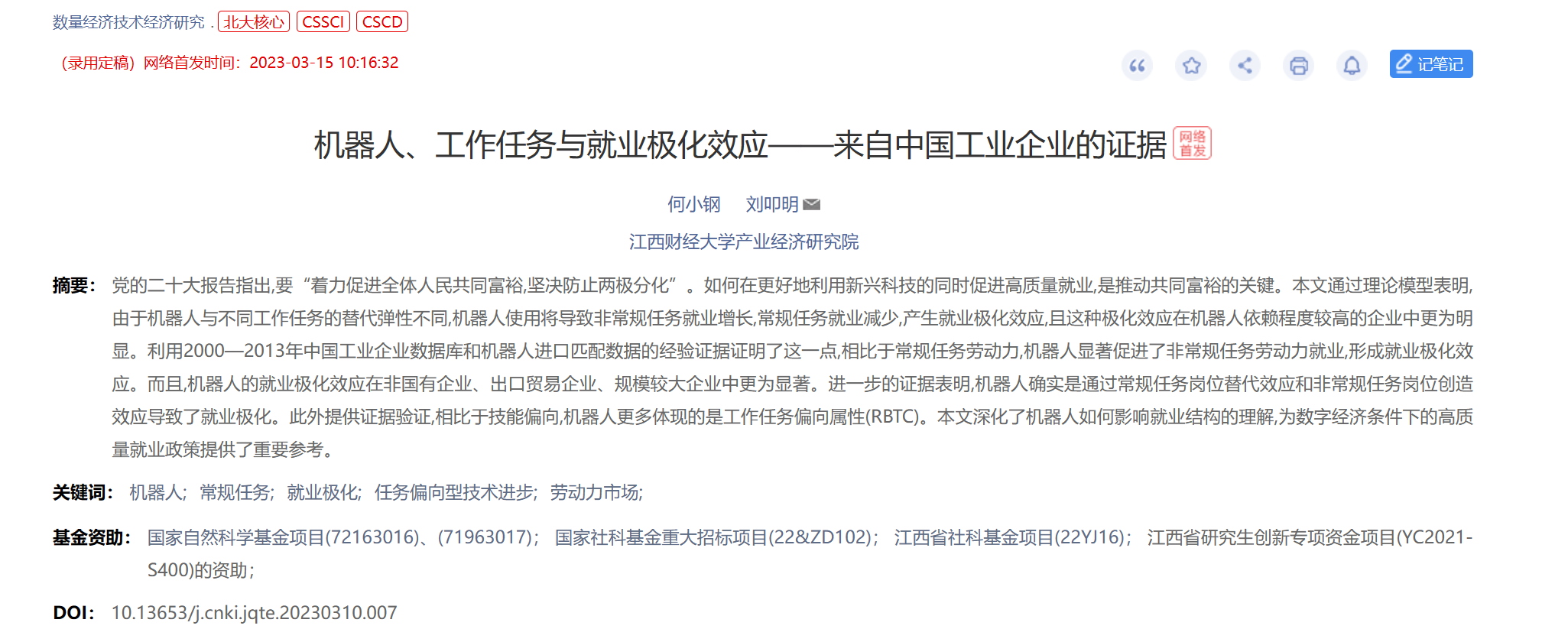Recently, our institute's master's student,Kouming Liu , under the guidance of Professor Xiaogang He , published research findings in the prestigious B+ journal "The Journal of Quantitative & Technical Economics" (Volume 4, 2023). The paper is titled "Robots,Job Tasks and Employment Polarization Effect:Evidence from China's Industrial Enterprises".
The paper attempts to study the impact and mechanisms of robots on employment polarization in China, both theoretically and empirically. First, it constructs a "robot-job task" model to elucidate the theoretical mechanism by which robots lead to employment polarization. Due to the higher substitutability of robots for routine task labor compared to non-routine task labor and their strong complementarity with the latter, non-routine task labor has a competitive advantage in employment, leading to employment polarization effects. In empirical testing, the study uses matched data from Chinese industrial enterprise data and customs trade data from 2000 to 2013 to confirm this. The research findings indicate that, compared to routine task labor, robots significantly promote the employment of non-routine task labor, resulting in employment polarization effects. Furthermore, the employment polarization effects of robots are more pronounced in non-state-owned enterprises, export-oriented enterprises, and larger enterprises. Further evidence suggests that robots indeed induce employment polarization through the effects of substituting routine task positions and creating non-routine task positions. Additionally, the paper provides evidence that, rather than skill bias, robots exhibit a task bias attribute (RBTC). The research findings deepen our understanding of how robots affect employment structures and provide important references for high-quality employment policies under the conditions of the digital economy.


